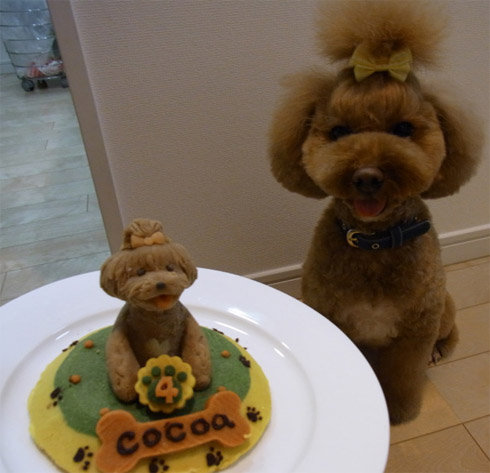
Working with wonderful woofers, the sort of furry joy-bringers that make a difference in people’s lives?
Pitching in with a pack of incredible pups can make a lasting impression on a person’s mind, outlook, and, for sure, their spirit, too.
And that chance to lend a hand, your time, some empathy and understanding, and a whole lot of love is coming up, on Dec. 11, thanks to a “puppy raiser” training session with Guide Dogs of America.
This is a virtual happening, via Zoom, and it will be the final online information event before in-person gatherings return to the Sylmar campus in 2022.
Guide Dogs of American pairs trained pups with “… individuals who are blind/visually impaired and service dogs for veterans and children with autism,” with dogs also being placed in “hospitals, schools, and courtrooms.”
“Our highly skilled canines become trusted companions that increase people’s confidence, mobility, and independence. All programs and services, including transportation, personalized training, room/board, and postgraduate support, are provided at no cost to the recipient,” states the organization on its site.
And helping the organization achieve its mission?
Puppy raisers, those dedicated volunteers who are among some of the first people a young, in-training dog gets to know, trust, and adore.
If you choose to pursue volunteering for this life-changing role, there’ll be a few initial considerations, as well as matters you’ll want to mull.
One consideration? Where you reside. You and the puppy in your care will need to call upon the Sylmar campus on occasion, and attendance at both monthly puppy group meetings and “puppy kindergarten classes” is required.
The Dec. 11 information session will address what you can expect from meetings and classes, as well as what at-home life will be like with the future guide dog you’re helping to raise.
Questions covered include the breeds and types of puppies that volunteers raise, what can be expected in terms of puppy proofing and such, what out-of-pocket expenses might look like, and how long the puppy will live in your home.
And, yes: “(W)hat happens when the dogs ‘go off to college’ to begin formal training” is also a central topic of the session, as well as how dogs are paired with their forever people once they’ve graduated.
The word straight from Sylmar? “We ALWAYS need puppy raisers,” says Stephanie Colman, the coordinator of the puppy program.
So even if you can’t join the December Zoom, you can plan to attend an in-person information session on the Guide Dogs of America campus, in early 2022.
Could this be your new year’s resolution?
“11 Adorable Dogs Who Know How to Paw-ty: Celebrating Birthdays with Cakes and Smiles!”
The Facebook menu showcases how much we adore our beloved pets, and we go to great lengths to make their birthdays extra special. It’s no secret that we shower them with cakes and treats as a way of showing our love and appreciation. These dog owners have taken it up a notch by throwing the most amazing parties for their furry friends, giving them an unforgettable day filled with love and attention. Take a look at these adorable pups as they relish in the limelight, becoming the star of the show on their special day. One of the videos captures a cute little pup whose appetite seems to be bigger than his tiny tummy, making for a hilarious and heartwarming moment.

The adorable pet featured in this Reddit post is overjoyed with his unique meat cake that is decorated with delectable dog treats.

We aren’t exactly foodies, but there’s one thing that gets us all excited – the moment when our mom cuts into her delicious cake. It’s a small pleasure that brings us so much joy!

These cupcakes are so adorable that I can’t resist raving about them. They look like they could be identical twins, and they’re just too cute to put into words.

There’s this adorable photo of a corgi on Pinterest, and it looks like he’s super focused on achieving something. It’s almost as if he’s got his mind set on winning a prize or achieving some sort of goal.

The little pug is experiencing extreme delight and cannot contain his laughter.

Can we currently indulge in The Marvelous7 without any concerns for safety?

I know that I am lucky and have been blessed with numerous privileges in my life.


“We are the kings and queens of the internet! Wow, this is just too cute!”

Are both of these items under my ownership as part of Internet Rulers11?

Isn’t this cute? Don’t forget to share it with your friends and spread the joy! We dominate the online world!



Leave a Reply